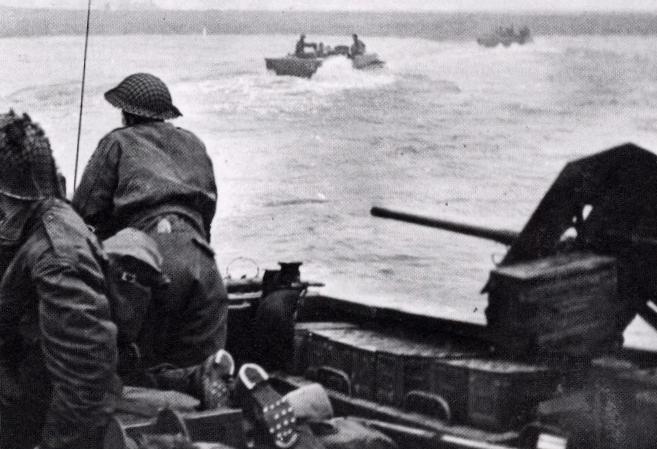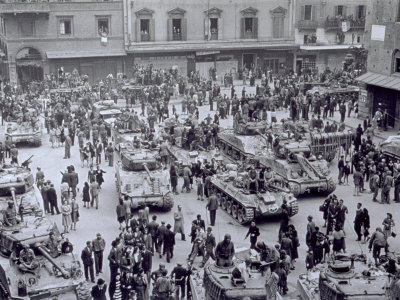[FONT=Verdana, sans-serif]From The second World War, by Winston Churchill, 1951[/FONT]
[FONT=Verdana, sans-serif]...after the sucess brought by allied conferences in Rejkiavik, Freetown and Stalingrad; Eden, Wallace, De Gaulle and Stalin agreed that a new conference to discuss the ordenation of postwar Europe and in which way Germany's spoils would be split was necessary. Another, unspoken, but no doubt most pressing, issue was in which way Central and Eastern Europe would be set up, and whose influence would be felt the most. It is most unfortunate, however, that Eden and Wallace were unable to secure real democracy for the whole of Europe. Despite Stalin's demise, as I write these lines the Soviet menace is again creeping toward Central Europe...[/FONT]
[FONT=Verdana, sans-serif]...after his uncle Hashim Khan's untimely demise in late 1942, the afghan king Zahir Shah had installed his cousin Daoud Khan as Prime Minister, in what every concerned part saw but did not describe as a relatively bloodless palace coup that sidestepped Zahir Shah's other uncle, suddenly banished to a lucrative post in Kandahar. Daoud's position lurched toward the Soviet Union, after the flow of german and italian development help had decreased due to the war. During 1943 and early 1944 soviet-afghan relations warmed up as soviet help began to flow -the Soviet Union was aware of Afghanistan's importance and was willing to sacrifice much needed wartime resources to improve its position, in a process that does not seem to have ended yet...[/FONT]
[FONT=Verdana, sans-serif]... in this neutral location, and after Zahir Shah had agreed to hosting the event, the leaders of almost every major allied power met from July 23 to August 1, 1944. Just what "major allied power" meant proved to be a point of contention in the weeks leading to the conference: while initial plans were that only the "big four" would attend, Eden and De Gaulle soon insisted that other leaders were invited, even if only as observers. Back in the day this seemed as only a graceful response to Durruti and Chiang's insistance in taking part in the design of the postwar world: a more truthful answer would be that Wallace and Stalin seemed intent in splitting Germany and Europe between them. Despite having opposed many of Durruti's petitions in the past and having fought to contain his influence, I advised Eden that the Empire's position at the bargain table would be improved by other minor powers supporting it. Durruti's friendship toward Wallace would also be useful in mediating between the british and american positions. Eden took my advice...[1][/FONT]
[FONT=Verdana, sans-serif]...in the end, the leaders of Spain, Canada, China, Portugal and Australia assisted to the conference together with the Big Four. The foreign Ministers of Argentina, Brazil, Mexico, South Africa and Siam also assisted as observers. A delegation of the polish government in exile also attempted to assist, but would be vetoed by the soviets...[/FONT]
[FONT=Verdana, sans-serif]...many seemingly minor issues were easily agreed upon: that the war would not stop until Germany's final surrender, that german leadership would be judged and condemned, and the nature and amount of german war reparations. In the issue of german leadership, all leaders agreed, as it would be revealed, that it was very unlikely that Hitler was in charge of the Reich anymore.[/FONT]
[FONT=Verdana, sans-serif]...seemingly concerned by the allied breaktrhough in the Palatinate and the stiffening of german resistance in Poland, Stalin insisted that the division of Germany in occupation zones was to be determined as soon as possible. Since at the time preparations for Matador were well underway and it was expected that most of Germany west of the Oder would end in western hands, Eden's position was that, while the number and allocation of occupation zones could and in fact should be decided in Kabul, its exact disposition should match realities in the battlefield. [/FONT]
[FONT=Verdana, sans-serif]...Eden's policy was, for once, helped by Durruti and Lopes' insistance that Spain and Portugal, whose contribution to victoy had been perhaps disproportionate to both countries' actual military and economic might, were allowed to share part of Germany's spoils. In this case, whatever territory was pledged to Spain or Portugal could not go to the Soviets. Eden and De Gaulle also supported Durruti's claims of higher war reparations toward Spain.[/FONT]
[FONT=Verdana, sans-serif]...the issue of occupation zones nearly broke down the conference, but Eden was adamant and in the end Durruti's lobbying brought Wallace on his side. It was finally decided that Germany would be split into eight occupation zones, allocated to the Big Four, plus Poland, Canada and two international zones shared by Spain, Portugal, the United States, the Soviet Union, Argentina, Brazil, Mexico and France, since it was agreed that neither Spain nor Portugal were in shape to sustain occupation efforts over a sizable part of Germany. The canadian zone was a last minute addition by Eden to forestall Stalin's proposal of a Polish zone: Eden had no illusions with regards to Stalin's intentions there and did not fight much to ensure a free and democratic Poland after the war. Similar arrangements were made toward Austria, but the happenings of the last week of the war would make them void. The last day, Stalin also proposed that the national self-determination wishes of peoples in Central Europe were respected in their entirety: an incredibly hypocritical claim after his own annexation of Estonia and Latvia, which hid his intention to split Czechoslovakia now that it seemed likely that western forces would beat the Red Army to Prague, or maybe too to divide a puppet Yugoslavia into smaller, manageable states. Eden, however, felt he had no choice but to accept this...[/FONT]
[FONT=Verdana, sans-serif]...the issue of Polish borders was also difficult. While Stalin accepted to step back from the post-Ribbentrop-Molotov borders, he was adamant in insisting to keep the Curzon Line as Poland's eastern border, but accepted to compensate Poland either by german territory or by fostering a new union between Poland and Lithuania. In the end it was decided that parts of Pomerania and Silesia would be annexed to Poland, together with the entirety of Eastern Prussia. Lithuania's fate would be decided in a following conference, but all parts agreed that a strong Poland-Lithuania would act as a bulwark against any future german expansionism eastwards. It was surprising to me that Stalin supported this instead of the obvious step of annexing Lithuania to the Soviet Union: I assume that he wanted to throw the West a bone to distract us from his intended sovietization of Poland...[/FONT]
[FONT=Verdana, sans-serif]...after agreeing to join the war against Japan within 90 to 120 days after Germany's defeat, Stalin also asked that, while he would welcome any help, the Red Army would not need western assistance to complete the war against the fascist states of the Balkans and Italy. This put Eden and De Gaulle in a very difficult position: the idea of a soviet-occupied Italy becoming Stalin's puppet in the Western Mediterranean and bordering France was unthinkable to the western leaders, but there was little that could be done directly...[/FONT]
[FONT=Verdana, sans-serif]...neither Turkey nor greece, who were officialy neutral, were, as far as I could know, mentioned during the conference. A fact we would lament a few months later...[/FONT]
[FONT=Verdana, sans-serif][1]Yes, Winston, we'll take your word for it. [/FONT]


